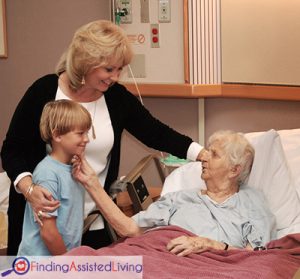 For both the patient and the caretaker or loved one, dementia is one of the most difficult medical conditions with which to deal. In dealing with dementia, the first thing you must overcome may very well be your own emotions. In many cases, dementia is the symptom of an underlying physical condition, but it shows itself as a change in personality, behavior or mental ability.
For both the patient and the caretaker or loved one, dementia is one of the most difficult medical conditions with which to deal. In dealing with dementia, the first thing you must overcome may very well be your own emotions. In many cases, dementia is the symptom of an underlying physical condition, but it shows itself as a change in personality, behavior or mental ability.
It is easy to sympathize with a person suffering from knee or hip pain because of arthritis or shortness of breath due to heart disease. We understand that these symptoms are the result of physical changes in joints or blood vessels. Likewise, dementia is often produced by changes in the brain, but the symptoms are more difficult to understand. Instead of crying out in physical pain, the victim may become irritable, angry or even aggressive. They may forget recent events, become disoriented, have difficulty communicating or even forget who you are. The problems with memory loss and communication skills can be extremely frustrating to the sufferer, caretakers and their family.
Tips for Dementia Patients
Dementia that is caused by disorders such as Alzheimer’s, is a progressive disease and is likely to become more severe over time. As the disease progresses, patients find it more and more difficult to communicate, remember and think clearly. The manner in which you have always communicated with them may become completely ineffective. This is not your fault; the disease is changing the way you relate to them, but you can learn effective techniques for dealing with this situation. Here are some tips that may help.
- Take care of yourself. You are not going to be of much use as the friend or caretaker of another person if you do not take care of yourself. You must try to get as much rest and relaxation time as you can. Do not feel guilty about this.
- Be patient, occasionally incredibly patient. Sometimes, dementia sufferers seem unreasonable, aggressive, “act out” or simply will not cooperate with those who are trying to help them. Remember that these are expressions of the disease, not the patient. This is sometimes the most difficult part of a caretaker’s task or a loved one’s responsibility. The person you remember as being patient, kind, reasonable and good natured may develop a different personality.
- Be positive with the person. Your tone of voice and body language may be of more help than your words or your logic. Speak in a kind, respectful voice. Offer a reassuring touch or a smile. These non-verbal communications may be better understood than words or logic can ever be.
- When seeking information, use simple questions that are easily understood. Do not ask complex questions that require a lot of reasoning or ask too many questions in a short time. This can confuse the dementia sufferer and even seem like an interrogation.
- Turn off distractions like radios or televisions when communicating. Try to become the sole object of attention, the immediate target of their response.
- Keep your message simple and clear. Do not use complicated words or long sentences. Try to use specific names, not pronouns. For example, speak of “your brother, James”, not “him”.
- Get help! Do not try to handle this alone. As Alzheimer’s and other forms of dementia have become more common, the number of support groups and other help options has also grown. Get help and knowledgeable advice. Here are some of those sources:
 The U.S. Department of Health & Human Services has an abundance of information on aging issues, including dementia.
The U.S. Department of Health & Human Services has an abundance of information on aging issues, including dementia.- The Alzheimer’s Association is a private, non-profit organization that disseminates factual information about Alzheimer’s and related diseases.
- The National Council for Aging Care can help find resources for those eligible to receive benefits.
- Local help and referrals are available from organizations like Finding Assisted Living and Ourseniors.net. They can direct you to home care resources, assisted living facilities with units dedicated to the care of residents suffering from dementia, support groups and other resources.
As a spouse, family member or other loved one, you may find yourself overwhelmed by the responsibility of caring for a person suffering with Alzheimer’s or other form of dementia. Finding Assisted Living and FindingAssistedLiving.com are dependable sources of unbiased and knowledgeable information and referrals for you or the person who depends on you. Please call on FAL to provide expert and trustworthy advice and assistance in finding home care options, assisted living facilities or a range of other options. Visit FindingAssistedLiving.com now to get the help you need.
Thank you for visiting the website of Ourseniors.net. The information contained on this website is provided for educational and informational purposes only. The contents of this site are not and should not be construed as legal advice. The website is not an offer to perform services on any matter. This website contains general information from a variety of sources and might not reflect current legal developments, verdicts or settlements. Please consult a professional such as an attorney and or CPA when taking these matters into consideration for you or loved one.

 The
The